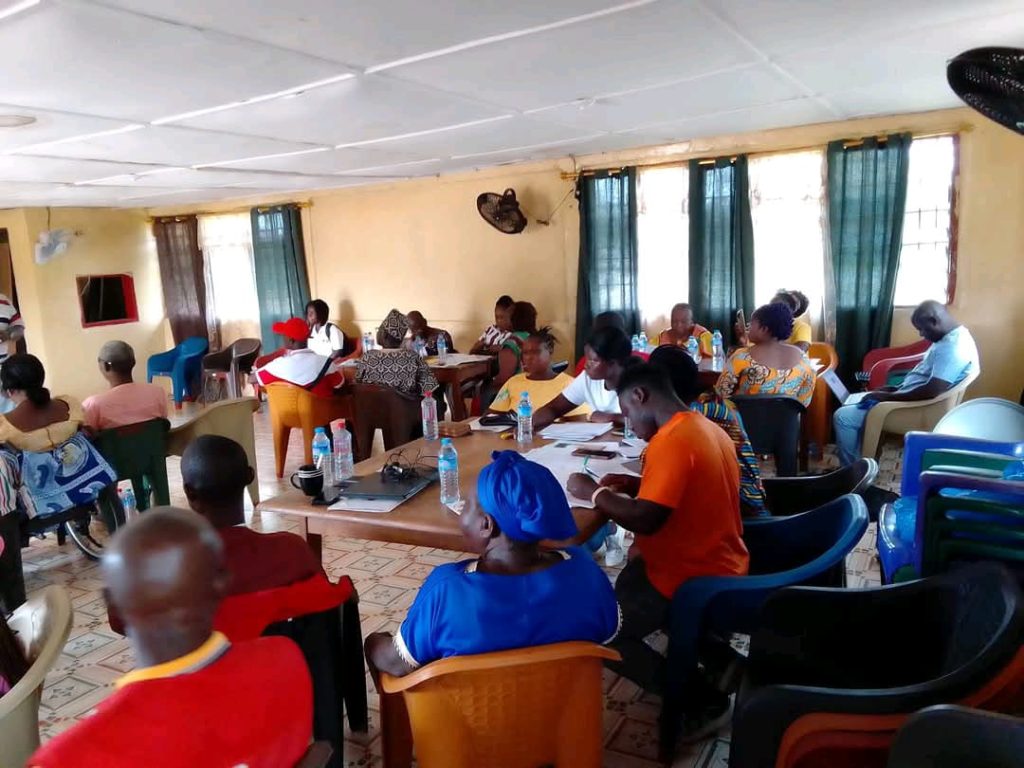The Liberia National Red Cross Society (LNRCS) embarked on a crucial capacity-building initiative, a two-day induction training program held in Gbarnga, Bong County, designed to empower its newly elected leadership cohort. This training, themed “Strengthening Leadership and Collaboration for Effective Governance and Management,” brought together 35 participants representing five counties – Grand Bassa, Lofa, Nimba, Rivercess, and Bong. The assembly included regional leaders, management staff, and the Central Region Vice President, signifying the LNRCS’s commitment to a comprehensive and integrated approach to leadership development. The program was particularly timely given the recent nationwide elections across all 15 counties, which resulted in 92 individuals taking on new leadership roles within the organization, with a significant 93% being first-time officeholders. Recognizing the critical need for guidance and orientation, this training focused on equipping these new leaders with a thorough understanding of governance structures, core principles of the Red Cross, and essential operational procedures.
The training program underscores the LNRCS’s understanding of the fundamental link between strong leadership and effective humanitarian service delivery. Gregory T. Blamoh, Secretary General of the LNRCS, emphasized the vital role of knowledgeable and committed leadership in enabling the organization to successfully address community-level humanitarian needs. He highlighted the training as a crucial step in ensuring that the newly elected leaders are fully prepared to serve with the utmost excellence and integrity, qualities essential for upholding the principles of the Red Cross. This proactive investment in leadership development underscores the LNRCS’s dedication to fostering a culture of accountability, transparency, and dedicated service to the most vulnerable populations. The training serves as a cornerstone for building a robust leadership pipeline within the organization, preparing it to navigate the complex and evolving humanitarian landscape.
Liberia currently faces a growing array of humanitarian challenges, making the strengthening of the LNRCS’s response capacity more critical than ever. The induction training program is strategically designed to address this need by enhancing the leadership’s ability to manage resources, coordinate operations, and effectively respond to emerging crises. By building a cadre of well-trained leaders across all regions, the LNRCS aims to ensure consistent and impactful humanitarian interventions across the country. The program also emphasizes fostering greater collaboration and coordination among regional offices, promoting a unified approach to humanitarian action. This enhanced coordination aims to streamline operations, avoid duplication of efforts, and maximize the impact of resources deployed in response to humanitarian crises.
The training program goes beyond merely enhancing internal governance. It is a strategic investment in the future of humanitarian action in Liberia, as articulated by Secretary General Blamoh. By empowering local leadership, the LNRCS is building a sustainable foundation for effective and community-centred humanitarian response. This approach recognizes the critical role of local leaders in understanding the specific needs of their communities, mobilizing local resources, and ensuring that humanitarian assistance reaches those who need it most. The investment in training and development reinforces the organization’s commitment to accountability and transparency, further strengthening public trust and confidence in the LNRCS.
The training program specifically fosters unified regional action, creating a platform for shared learning and collaboration among leaders from different counties. This exchange of experiences and best practices allows for the development of more efficient and targeted humanitarian responses, tailored to the unique challenges and needs of each region. By bringing together leaders from diverse geographical areas, the LNRCS is building a network of interconnected and mutually supportive leaders, strengthening the organization’s ability to respond effectively to complex emergencies and provide coordinated assistance across the country.
This induction training is a significant step forward in the LNRCS’s ongoing efforts to build its capacity nationwide. It represents a renewed commitment to community-centered leadership, ensuring that local voices are at the forefront of humanitarian action. By investing in the development of its leaders, the LNRCS is reinforcing its mission to provide timely, effective, and impactful humanitarian services across Liberia, reaffirming its commitment to alleviating suffering and supporting vulnerable communities in times of need. The training serves as a cornerstone of the organization’s long-term strategy to strengthen its presence and impact across the country, positioning it to respond effectively to future challenges and contribute to a more resilient and prepared Liberia.


